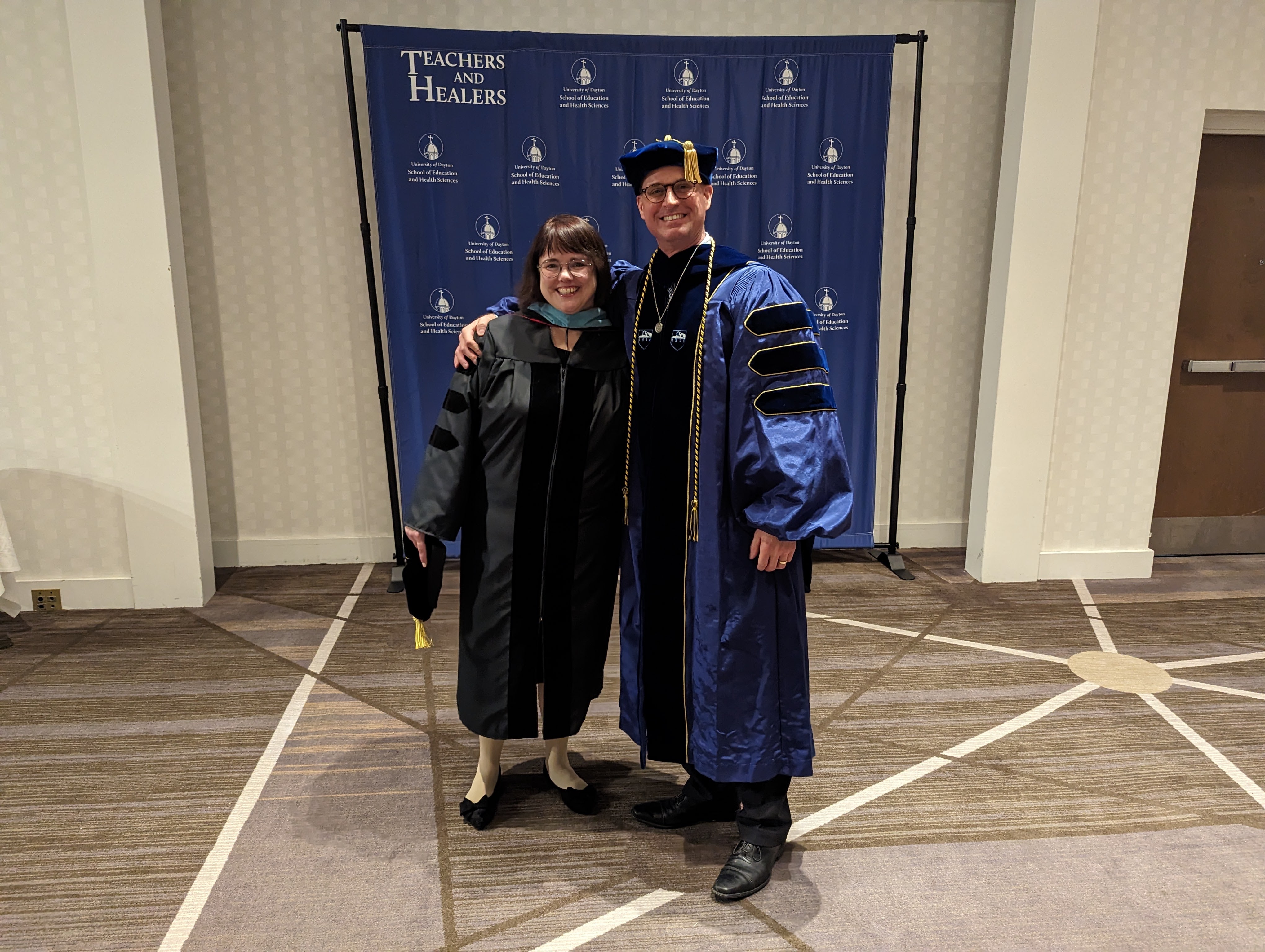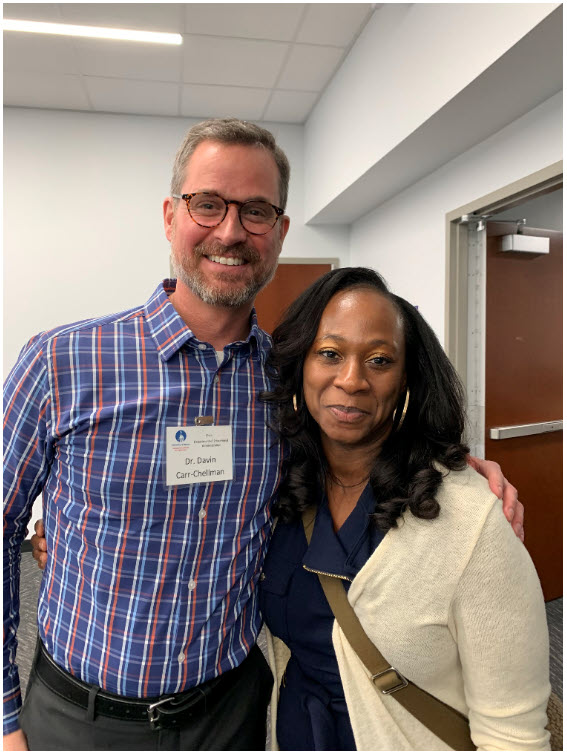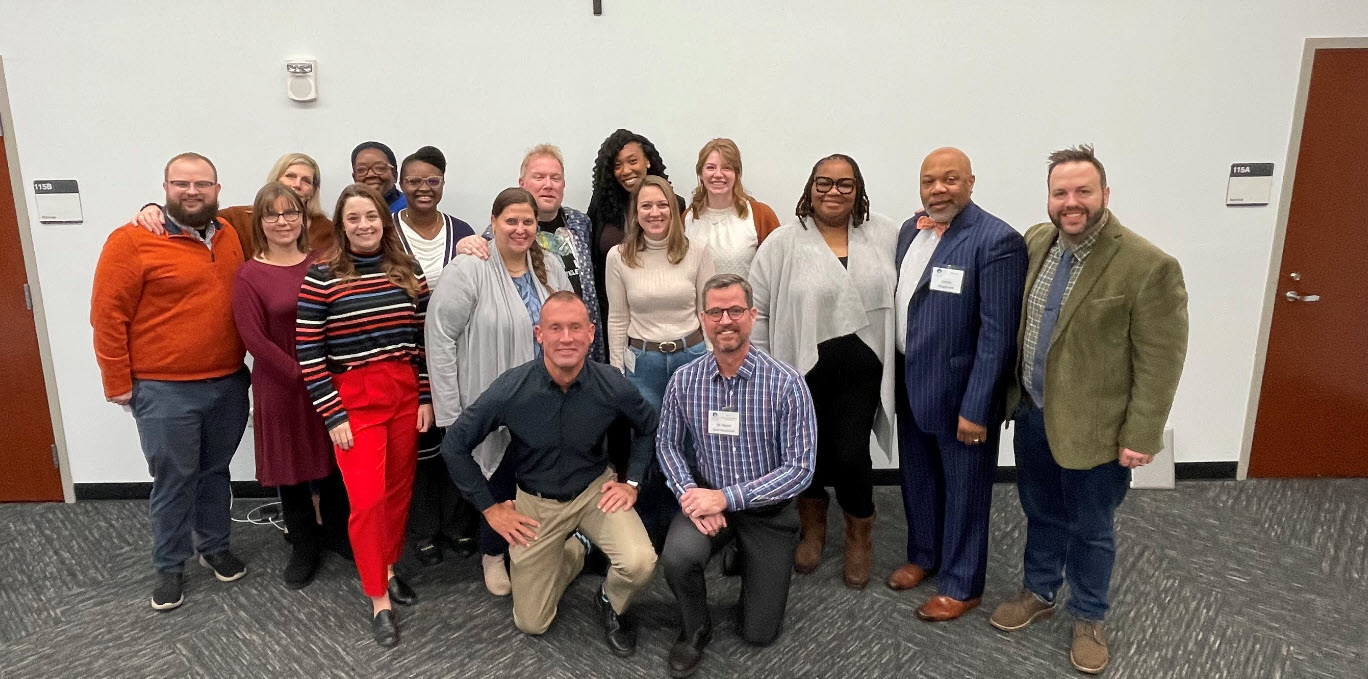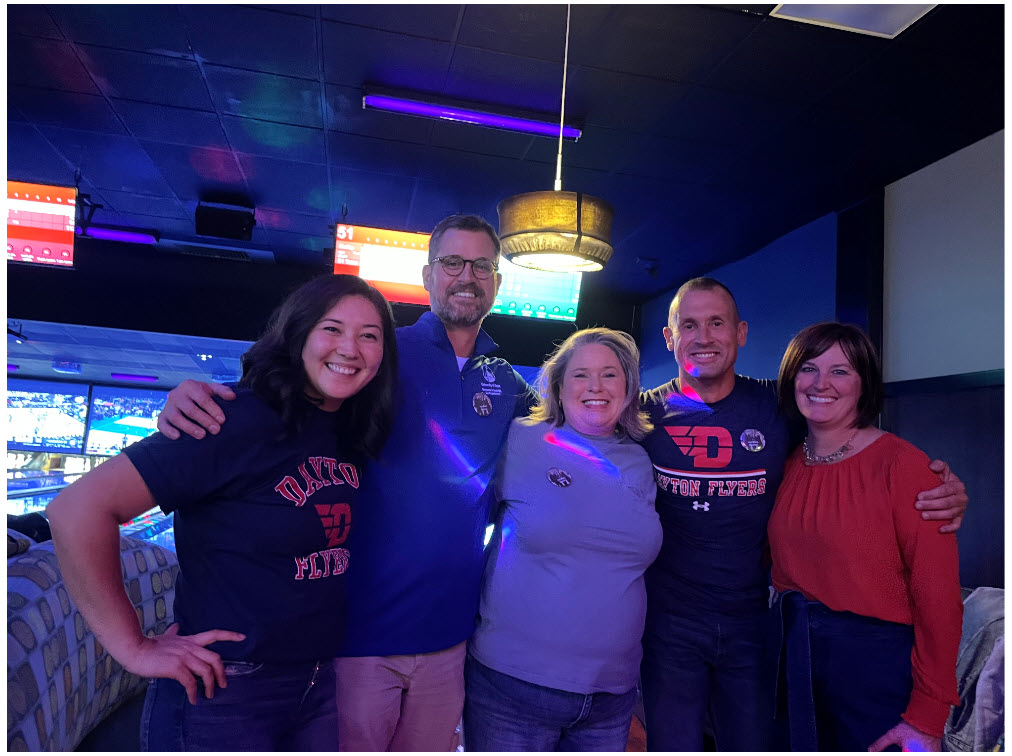Blogs
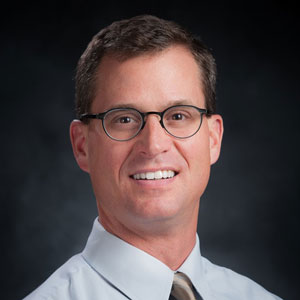
Empowering Minds: Dr. Carr-Chellman's Vision for Human Flourishing
By Cindy McMullen and Dr. Katie Reynolds
In the heart of academia, where the quest for knowledge and the passion for teaching intertwine, Dr. Carr-Chellman stands out as a beacon of inspiration and dedication. From the unexpected beginnings of his career to his current research focusing on profound learning and human flourishing, Dr. Carr-Chellman's journey is a testament to his commitment to making a difference in the world through education.
A Serendipitous Start
Dr. Carr-Chellman's foray into academics was as unexpected as it was serendipitous. "I was teaching at the university level almost the day after I finished my undergraduate," he recalls. He was thrown into the deep end to teach an undergraduate ethics course at Penn State University due to a Ph.D. student's sudden illness. Despite feeling "woefully unprepared," this trial by fire ignited a passion for teaching that has never dimmed. Reflecting on this pivotal moment, Dr. Carr-Chellman shares, "It was some of the hardest work I ever did, and I loved every minute of it."
A Calling Beyond Academia
Dr. Carr-Chellman's path wasn't confined to the academic world; it also meandered through roles as a pastor and in nonprofit management, always focusing on helping others. This blend of experiences enriched his approach to academia, where he sees the role of a faculty member as not just about knowledge generation and transmission but fundamentally about improving lives. "At the core of that is helping people, wanting to make life better," he emphasizes, showcasing his holistic view of education's impact. It became apparent to him that adult learning was of particular interest. For the past six years, his research has focused on understanding the complexity of capacity building. In other words, what circumstances create a situation for profound learning or changes that create alternative thinking patterns?
Exploring the Depths of Learning
Dr. Carr-Chellman's research interests are impactful, exploring philosophy, adult learning, and organizational capacity building. His focus on "profound learning," which he defines as the type of learning that occurs under specific circumstances within organizations or communities, is particularly intriguing. "I'm less interested in how people identify something as profound learning as much as I am interested in the organizational and community characteristics and qualities that facilitate that kind of learning," he explains.
Human Flourishing as the Ultimate Goal
Dr. Carr-Chellman's research is driven by a desire to promote human flourishing. He is deeply interested in exploring how the structures within an organization can foster deep learning and contribute to the thriving of individuals and communities. "When it comes to creating structures in an organization that facilitates profound learning, the ultimate goal should always be to promote human flourishing," he emphasizes, underlining the close links between education, well-being, and societal progress.
Demystifying Academic Freedom: Understanding its Complexities
Dr. Carr-Chellman shared the meaning of academic freedom and his concerns. He shared that Academic freedom is a fundamental principle of higher education, often mistaken as job security. "So it is the freedom of a teacher or researcher in higher education to investigate and discuss the issues of their field and to teach and publish findings without interference from political figures, boards of trustees, donors, or any other entity outside the community of scholars. It is self-policing. Academic freedom also protects the right of a faculty member to speak freely when participating in institutional governance, as well as to speak freely as a citizen, as long as the faculty member clarifies as much as possible that speaking as a citizen, they're not representing the university" he explains.
It means allowing scholars with autonomy to explore their expertise and disseminate their knowledge without interference. The four critical components of academic freedom are teaching, research, intramural speech, and extramural speech. "I think a lot of people think that it is unlimited, but it isn't. As a faculty member, academic freedom is governed by what the American Association for University Professors, which is the primary organization, the prime mover from the early 1900s, even till now, in talking about what are the roles and responsibilities of a faculty member at a university" he explains. These guidelines emphasize the importance of collective governance, which includes peer review and collaboration among scholars to ensure quality research and teaching. Adherence to ethical standards and valid academic discourse are also necessary for academic freedom. By understanding the nuances of academic freedom, we can appreciate its significance in shaping higher education and promoting intellectual exploration.
"So academic freedom and tenure are primarily peer-governed. This is why many faculty members identify more with their discipline. So, for me, adult learning, for example, is better with their particular institution because my work is judged solid or exceptional, publishable or worthwhile, and it's judged by my peers and my discipline appropriately. So it is that community of experts in a given field that self-police, basically," he continues.
However, academic freedom faces unprecedented challenges and threats today, including pressures to censor or restrict academic inquiry and targeted harassment of faculty members. It is crucial to defend academic freedom as a cornerstone of higher education and advocate for policies that protect the integrity of scholarly inquiry. By safeguarding academic freedom, we preserve the spirit of intellectual curiosity and innovation that defines American higher education.
Nurturing Excellence: A Faculty's Commitment to Student Success and Social Justice
Dr. Carr-Chellman was asked what he was most proud of regarding the EdD program, and without hesitation, he said, "Our students are our most important accomplishment. However, as a faculty, we are tremendously student-centered. And we are constantly thinking about improving our program's student experience." He also discussed the department's "signature pedagogy," social justice. He is very proud of the breadth of student-instructor collaborations in research. He is impressed and inspired by the significant research students have produced in their dissertations. He said, "Our students are changing the world with their dissertations and work."
Dr. Carr-Chellman explains that students are the center of our academic community, and he takes pride in their success. He is committed to student-centered learning, which means every decision and initiative taken is focused on improving the learning experience. He is proud of the impact education has on the world and is committed to nurturing the minds and hearts of students. The department strives for excellence and is unwavering in our commitment to social justice.
New Initiatives
Dr. Carr-Chellman highlights that the institution is committed to improving student learning outcomes and is currently working on building a writing center. He said, "So, we are always looking for ways to make things better for our students, for our learning outcomes to be realized more effectively." The writing center will allow students to work with highly qualified faculty to improve their dissertation writing skills and attend workshops to enhance their competencies in specific areas. Despite the project's complexity, Dr. Carr-Chellman is grateful to the faculty involved in making it happen.
A Mentor's Heart
Dr. Carr-Chellman's commitment to his students is evident in his advice and the supportive community he fosters. He encourages students to enjoy their academic journeys, find topics they love, and build lasting networks. "Make friends, or if you're not making friends, at least have partners that you read each other's writing. You talk about texts together, job opportunities, what you're going to do after graduation," he advises, underscoring the importance of community in academic success.
A Visionary's Reflection
As Dr. Carr-Chellman reflects on his career and the impact of his work, his humility and dedication shine through. "I think I've said way too much," he jests, acknowledging the breadth of his experience and insights. Yet, it's clear that his contributions to academia and his students' lives are profound and far-reaching.
Dr. Carr-Chellman's journey from an unexpected start in teaching to his influential research on profound learning and human flourishing exemplifies the transformative power of education. His dedication to improving lives through learning and his commitment to his student's success makes him a truly invaluable member of the academic community. As we celebrate his achievements and insights, we are reminded of the profound impact that passionate educators like Dr. Carr-Chellman have on the world, nurturing minds and fostering environments where everyone can flourish.

